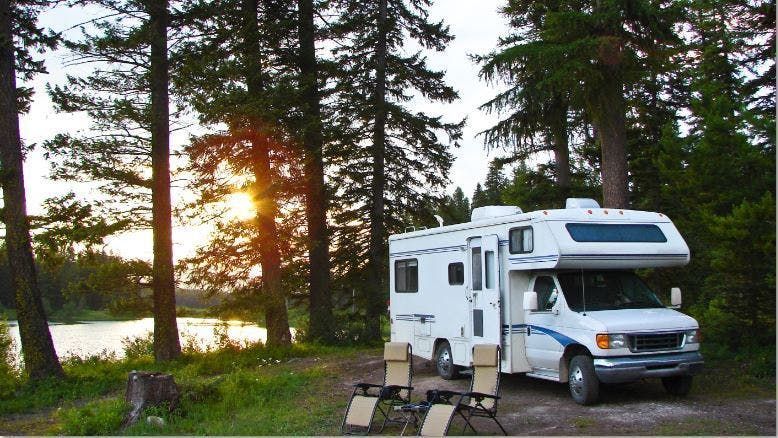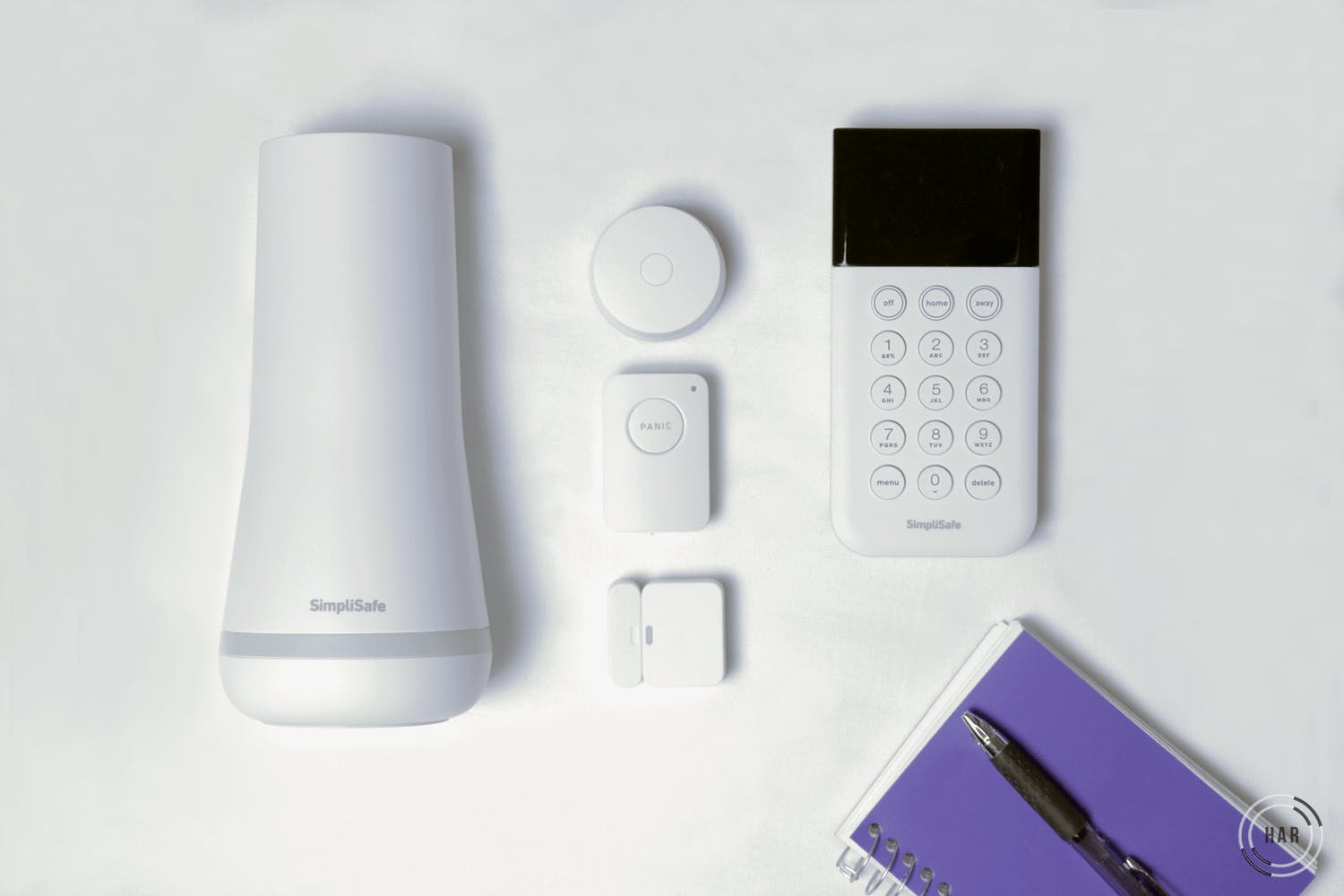
What you call "home" doesn't necessarily have to be confined within the four walls of your house. Perhaps you've taken up full-time RVing, or maybe you're just doing it as a hobby. Either way, your RV is now part of your home, and that means you should also think about extending your home security to your RV.
Why You Need A Security System For Your RV
Living the life of a modern nomad isn't easy and it certainly doesn't come risk-free. There's always the risk of your RV getting hitched while you're on the road. Or while you're out exploring, thieves might make their way inside and take your belongings. These scenarios are certainly traumatizing, but the mere fact is that wherever we all go, the risk of getting robbed is there. Thus, a security system is needed.
What To Look For In A Security System
Finding a security system for your house is already tough enough, but believe us when we say that finding one for your RV is even harder. In general, you must look for a security system that can do the following:
- Protect your belongings and your RV
No one wants their RV to be stolen, but you should also think about the contents of your mobile home. A thief may not necessarily take your entire RV, but what about your belongings? You need a system that can protect both your RV and what's inside it.
- Work untethered.
You live an untethered lifestyle, and so should your security system. Most security systems require landline or broadband internet to send alerts, but if you're going to add a security system to your RV, you need one that can work without a landline or internet.
- Help you get assistance if needed.
It's easy to feel like you're on your own when RVing, so you need a security system that makes it easy to call for help during an emergency, whether it's a monitoring center, 9-1-1, or a trusted friend or relative.
Our Top Picks For RV Security
Security Systems
You need a security system that supports your on-the-go lifestyle, while providing the sensors you need to protect your RV and your belongings. In this case, traditional home security systems just won't cut it because for one, they don't normally cater to RVs. Also, professionally monitored systems are tied to a single address — your home address.
Fortunately, there are some that can cater to your lifestyle.
1. Tattletale
Tattletale is a unique security device. Popular with property managers and contractors, it’s a system designed to protect temporary spaces and places, like RVs.
Tattletale is a system built around a base unit, a semi-smashproof device whose job is to connect with other pieces of Tattletale equipment. What’s special about the base unit is that it uses a military-grade technology called HALO Advanced Technology. This technology allows the base unit to wirelessly connect to other devices from up to 300 feet away, even through walls. In addition, the base unit can protect your RV on its own thanks to its built-in motion sensor and siren.The downside is that it has to be plugged-in. Although it has battery backup, it only works for up to 20 hours. It's good for quick stops, but not as good for camping.
If you want to expand your system, Tattletale offers other security devices including indoor and outdoor motion sensors, door sensors, glass break sensors, and smoke sensors. For RVs we recommend door/window sensors, glass break sensors, and motion sensors.
Besides equipment, Tattletale offers monitoring services that are contract-free and charged month-to-month. A professional monitoring option is available at $28.95/month, but we don't recommend it because they can only dispatch help in your home address. We recommend the self-monitoring plan. For $19.95/month, your system will gain the ability to send you email and text alerts.
Pros
- Robust security system
- Untethered wireless technology
- No-contract monitoring with self-monitoring option
- High monthly fees
Cons
- Lacks smartphone access
- Limited 20-hour battery backup

2. SimpliSafe
SimpliSafe is a lot like Tattletale, only more modern. It's built around a base unit with battery backup and built-in siren. Unlike Tattletale, its battery only lasts for a mere 8 to 12 hours, but if you can figure out a way to keep it plugged in, it can protect your RV continuously.
The system supports several security devices: motion sensors, door/window sensors, glass break sensors, panic buttons, and even an extra siren.
SimpliSafe offers professional monitoring, but then again, it's not recommended for RVing. You can, technically, update your location every time you're in a new place so that help gets sent to your location, but it's not ideal if you're staying at campsites. Although SimpliSafe can report the location to the authorities, a quick response from the cops is not assured.
Simplisafe Special Promotion
Simplisafe is currently running one of the best promotions we've seen. Check their website for full details.
Pros
- Wide selection of equipment
- No need for landline or Wi-Fi
- Loud siren
Cons
- No self-monitoring features (text, email, push alerts)
3. ADT Go
ADT Go is not technically a security system, but it's a feature offered to current ADT users. With that being said, we recommend it to RV enthusiasts who use ADT services to protect their homes whenever they're on the road.
ADT is Our Top Pick for 2023
Available Nationwide · All-Inclusive Monitoring · 6-Month Guarantee
ADT Go comes in the form of a safety app. You can use the app to track your family's location, get local crime data, and alerts. It's a free to use for all ADT users. You simply need to download the app and sign up using your ADT-registered phone number and providing your customer number. However, ADT Go offers premium features for $9.99/month (plus taxes). Going premium, which we recommend that you do, will enable Crash Detection & Response (sends alerts to family members and monitoring center if you're in an accident), 24/7 roadside assistance, and Personal Emergency Response via the app's S.O.S. button feature.
Pros
- Features designed specifically for on-the-go lifestyles
- Direct line to ADT monitoring center
- Easy access to emergency help
Cons
- Premium features require monthly fee
- Requires Wi-Fi or 3G/LTE on your phone
Security Cameras
Placing one or two security cameras in you RV is also a good idea. Doing so adds an extra layer of security to your home and provides evidence in case someone breaks into your RV. Unfortunately, only a few cameras can work in an RV setting because of two reasons: lack of power source and lack of an internet connection. These are some of the cameras you can use:
1. LTE-Enabled, Battery-Powered Cameras
Thanks to advancements in battery technology, there are now cameras that can run unplugged for months. Better still, there are battery-powered cameras that use 4G/LTE for sending videos to the cloud.
Arlo Go and Reolink Go are perfect examples. The two cameras are the same in that they are both battery-powered and they both have a SIM slot. Arlo Go partnered up with AT&T and T-Mobile for cellular coverage, while Reolink Go supports T-Mobile.
When they detect movement, both cameras can also send notifications and record a short clip in the cloud. The clip limit will depend on your mobile data plan. You can also view your cameras remotely, but doing so will count against your data limit.
The biggest downside of LTE-enabled cameras is their cost. They are expensive, selling for $400 upwards if bought with a SIM card. On top of that, you'll need to pay monthly for the data plan.
2. Inexpensive Cameras With Continuous Recording
If LTE cameras are out of your budget, you could try the exact opposite: inexpensive cameras. While these cameras don't run on battery-power and they certainly can't send you alerts without being connected to Wi-Fi, most cheap cameras have the ability to record continuously to microSD cards.
Wyze Cam 2 is a prime example. You can buy it for as low as $20, yet it offers a great camera quality backed by a solid and reliable software. It does require a Wi-Fi signal to set up Wyze Cam and you'll need to set it to record continuously to a microSD card while online. Once it's up and running, however, you can move it to your RV and plug it to a power source. It will start recording continuously upon booting up. To watch its recordings, simply take out the microSD card and plug it to a computer.
Final Thoughts
Your RV is your home away from home, so RV security is a matter that shouldn’t be taken lightly. That said, we recommend multiple levels of security. Add a security system, then add a security, and then if you have any more ideas on how to make your RV more secure, do that, too.

